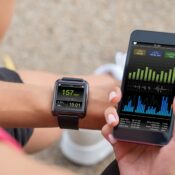People simply don’t think much about their ability to listen to music and hear the voices of friends and loved ones. But the auditory system is one of the body’s most complex and delicate sensory systems. One critical component lies deep in the ear—a remarkable structure called the cochlea that allows us to hear different pitches and sounds. That is, unless something goes awry.
Birth defects, infections such as measles and meningitis, and excessive noise exposure can irreversibly damage delicate cells within the cochlea. As voices and sounds become muffled or distorted, people tend to withdraw from social gatherings as well as conversations at home and work.
“It’s easier than asking someone to repeat, and repeat, and repeat, Mary Kay Windham wrote in the January 2010 Post article “Wired for Sound” about the Envoy Esteem fully implantable hearing device that uses the natural eardrum to detect sounds and was FDA-approved in March.
Electronic cochlear implants bypass the eardrum and transmit sound by stimulating the cochlea to restore hearing. Once reserved for young children with severe to profound hearing loss, adults age 65 and older who aren’t helped by standard hearing aids can also derive significant benefit from modern versions of the sophisticated cochlear devices, according to a May 2010 study from the Medical College of Wisconsin, Milwaukee.

More than 31.5 million Americans have some degree of hearing impairment—a number that is expected to nearly double by 2030—and about 100 babies are born each day with partial or total deafness.
Recently, an elite group of high school graduates was awarded the Graeme Clark Cochlear Scholarship for exceptional achievements in the classroom and community.
Each student has the Nucleus 5 cochlear implant http://products.cochlearamericas.com/cochlear-implants, a hearing system for children and adults with severe to profound hearing loss from Cochlear Americas that became available to the public in September 2009.
“What makes this new implant so remarkable is that it is significantly smaller than Cochlear’s previous implant and any others, resulting in a more natural fit for adults and children,” said Bruce Gantz, M.D., Professor and Head of the University of Iowa Department of Otolaryngology, Head and Neck Surgery.
Recipients of the four-year college scholarships are:
- Caroline Cook: Enrolled at York University, Caroline enjoys sprint canoeing and kayaking. Memorable “firsts” after receiving a cochlear implant include hearing the starting pistol at kayak races and the piano music that she herself was playing.
- Rahul Rajagopalan: Enrolled at Massachusetts Institute of Technology, Rahul credits his independent lifestyle and improving social skills to the hearing implant.
- Nathan Sarapas: Now studying civil engineering at Worcester Polytechnic Institute, Nathan says a cochlear implant helps him excel in the classroom and contribute to his community through the Boy Scouts of America.
- Jake Spinowitz: A student at the University of Pennsylvania, Jake opted for a cochlear implant while in the ninth grade and has since taught himself to play guitar. He also created a community program to collect used hearing aids for distribution to those who can’t afford them.
- Matthew Wolff: A TV and film major at Northwestern University, Matt received a cochlear implant at the age of three. To help others with hearing loss, he volunteers for the Hearing Loss Association.
“Cochlear Americas is proud to sponsor an initiative that encourages academic success among Nucleus recipients, providing a solid foundation for future professional and personal achievements,” said Chris Smith, president, Cochlear Americas. “The five winners of this year’s Graeme Clark Cochlear Scholarship, along with all of the applicants we considered, are examples of what young adults with a significant hearing impairment can achieve when given the opportunity and support to do so.”
The Post extends a congratulations and best wishes to these inspiring young people.
Become a Saturday Evening Post member and enjoy unlimited access. Subscribe now



